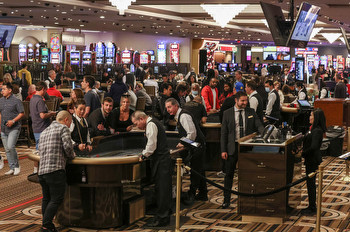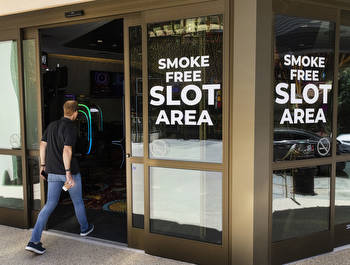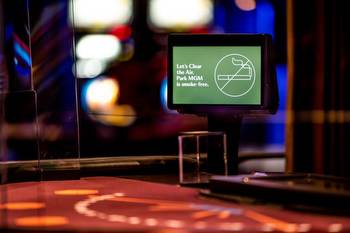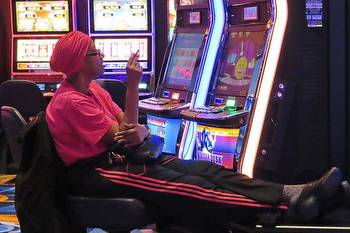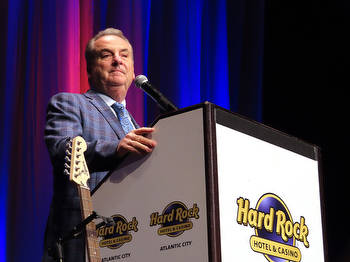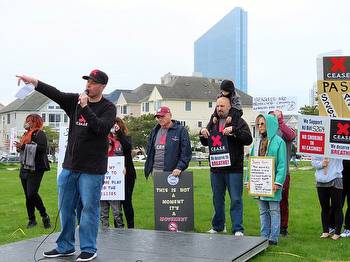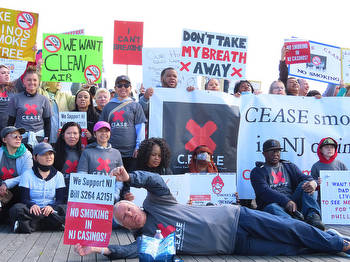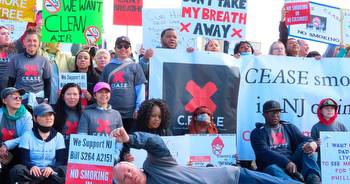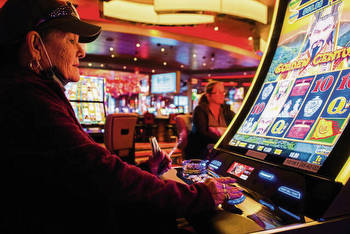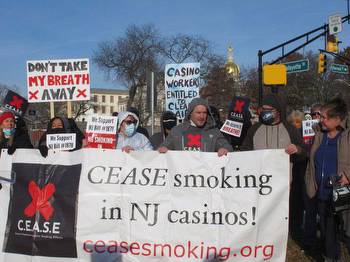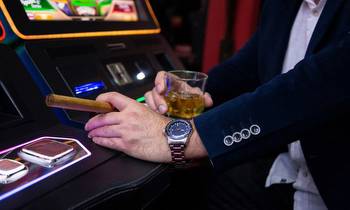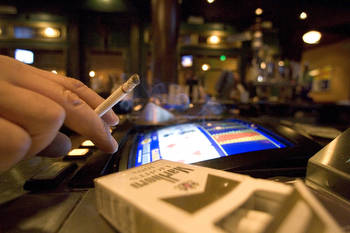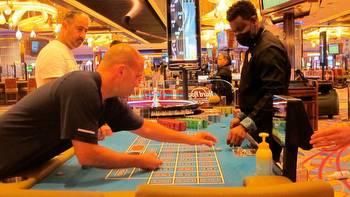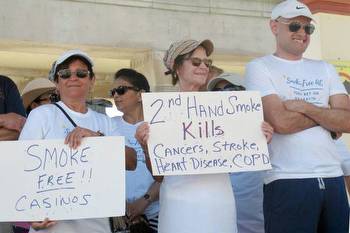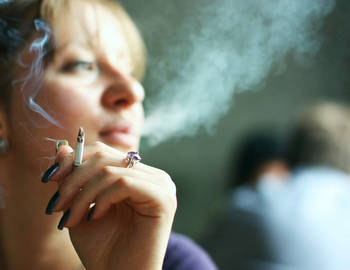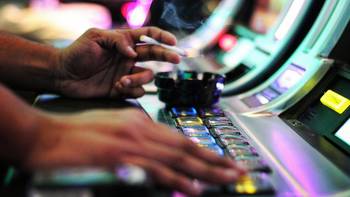Smoking foes: Make COVID casino smoking ban permanent in N.J.

In this March 9, 2016 photo, Cheryl Palina of Philadelphia lights a cigarette while playing a slot machine at the Tropicana casino in Atlantic City, N.J. On Thursday, April 15, 2021, health advocates, smoking opponents and some New Jersey lawmakers called for the state’s temporary ban on casino smoking, imposed last year due to the coronavirus pandemic, be made permanent once the outbreak ends.
Friday, April 16, 2021 | 2 a.m.
ATLANTIC CITY, N.J. — Health advocates say New Jersey's temporary coronavirus-related ban on smoking in the Atlantic City casinos should be made permanent, and some state legislators said Thursday they will push to make that happen.
But the casinos say permanently banning smoking once the pandemic has ended will drive away customers, leading to job losses and lower tax revenue for the state. They say the gambling halls have invested heavily in air filtration equipment that renders the workspaces safe.
According to the American Nonsmokers’ Rights Foundation, casinos in 20 states are smoke-free, and three additional states — New Jersey, Pennsylvania and Michigan — have enacted temporary virus-related smoking bans.
On the 15th anniversary of a state law that exempted Atlantic City casinos from a sweeping indoor smoking ban, opponents of smoking called for New Jersey's temporary ban to be made permanent.
“Casinos are learning to do business differently,” Bronson Frick, an official with the nonsmokers' rights group, said in an online news conference. “In the year 2021, we take for granted that airplanes and restaurants should be smoke-free, even though that change took place relatively recently.”
He said 1,100 casinos in the U.S. do not allow smoking. Smoking is allowed in Nevada, but companies are free to set their own policies and some ban it.
“We've seen it's possible for casinos to operate with smoking bans because they had no choice,” said New Jersey Assemblywoman Valerie Vainieri Huttle.
She said the law passed in 2006 that exempted casinos prompted bills that would ban smoking in casinos in many subsequent years, but they went nowhere in the state Legislature.
“This time is definitely different,” she said. “For over a year, we've been battling with a respiratory virus, one that disproportionately impacts smokers.”
But the Casino Association of New Jersey, the trade group representing the Atlantic City casinos, said a permanent ban would do great harm to the industry.
“Banning smoking permanently would have long-term financial implications for the industry and the region,” the group said in a statement. “Going completely nonsmoking would place Atlantic City casinos at a competitive disadvantage with other nearby casinos that allow smoking.”
Such a ban would lead to fewer customers, fewer casino jobs and lower tax revenue, it said.
“We also understand that air quality is extremely important to the health and safety of our valued employees and guests, which is why we have invested in state-of-the-art air filtration systems that circulate fresh air,” the group said. "With the onset of the pandemic, independent experts reviewed our air filtration systems, confirming their effectiveness in exchanging large volumes of air and keeping the air quality fresh and clean.”
Atlantic City's nine casinos continue to operate under capacity restrictions due to the pandemic. And even before it hit, they were struggling with ever-increasing competition in the Northeast.
Atlantic City tried a partial smoking ban in Oct. 2008 that lasted less than three weeks. Several casinos said they saw double-digit declines in revenue during that time. The Atlantic City Hilton and Resorts said the smoking ban led them to $1 million monthly losses at both properties.
But Karen Blumenfeld, executive director of Global Advisors on Smokefree Policy, said the Atlantic City casinos still increased their revenues that month, despite the partial ban.
“And that was when the stock market tanked from the mortgage-backed securities market crash,” she said. "You can’t choose to breathe, so the air needs to be clean, and free from carcinogens known to cause cancer.”








